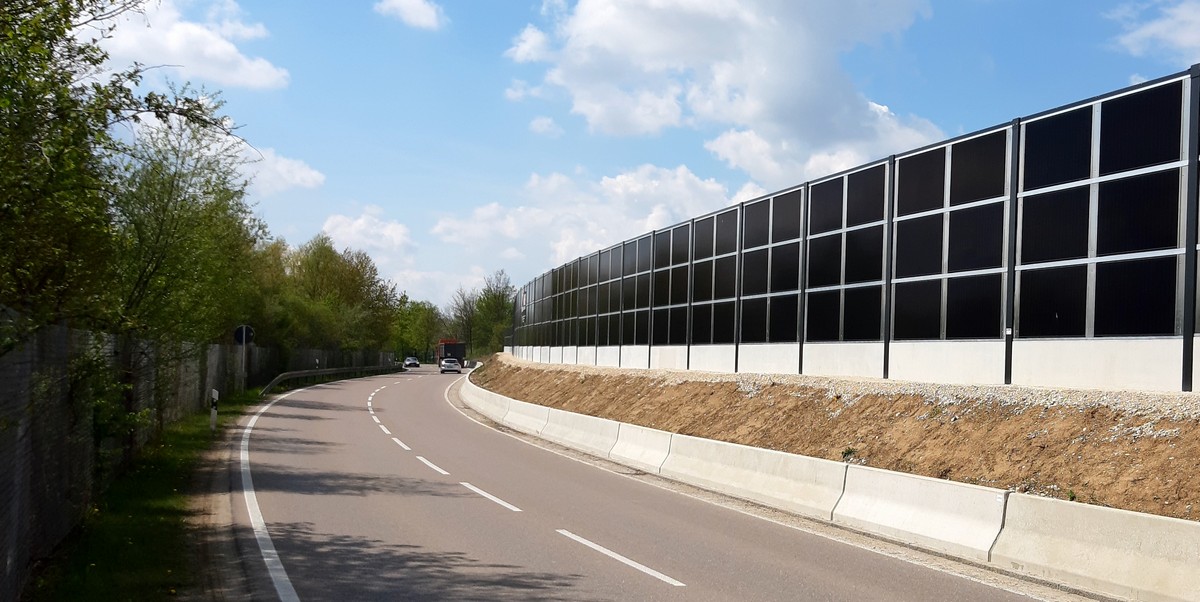From pv magazine Germany
Germany’s BASt has assessed the potential for PV installations along the nation’s highways in a study for the Federal Ministry of Transport.
It said that Germany’s roughly 50,000 km of highways could host 24 GW to 48 GW of solar capacity. Noise barriers could add 3.2 GW to 4.2 GW, parking areas 1 GW to 1.2 GW, vertical barriers 0.5 GW to 0.6 GW, and rest-area buildings 0.13 GW to 0.15 GW.
BASt said that road surfaces were excluded from its assessment. The study analyzed nationwide potential without examining specific areas due to a lack of data on land ownership and conservation restrictions.
Federal Autobahn GmbH is developing a national registry to identify sites and facilities for solar deployment, with consideration for the economic feasibility of building and operating systems.
If the company doesn’t require facilities for its own use, it plans to grant third-party rights to municipalities, residents, or investors to develop solar installations. Federal Autobahn GmbH is also finalizing the necessary contractual frameworks for these arrangements.
State Secretary Susanne Henckel said the ministry will consistently evaluate opportunities to incorporate solar systems during the planning, construction, and expansion of highways to maximize potential.
“We already created the legal framework in 2023 with the Approval Acceleration Act, which accelerates and simplifies the expansion of photovoltaic systems on and along federal motorways,” said Henckel. “Now, together with Autobahn GmbH, we are quickly initiating the next steps necessary for practical application.
In 2023, Fraunhofer Institute for Solar Energy Systems (Fraunhofer ISE) and its Austrian partners installed a system above a highway rest area near Lake Constance to test the concept. Switzerland is also studying the feasibility of building a 14 MW solar plant over a motorway in the canton of Fribourg.
This content is protected by copyright and may not be reused. If you want to cooperate with us and would like to reuse some of our content, please contact: editors@pv-magazine.com.








By submitting this form you agree to pv magazine using your data for the purposes of publishing your comment.
Your personal data will only be disclosed or otherwise transmitted to third parties for the purposes of spam filtering or if this is necessary for technical maintenance of the website. Any other transfer to third parties will not take place unless this is justified on the basis of applicable data protection regulations or if pv magazine is legally obliged to do so.
You may revoke this consent at any time with effect for the future, in which case your personal data will be deleted immediately. Otherwise, your data will be deleted if pv magazine has processed your request or the purpose of data storage is fulfilled.
Further information on data privacy can be found in our Data Protection Policy.